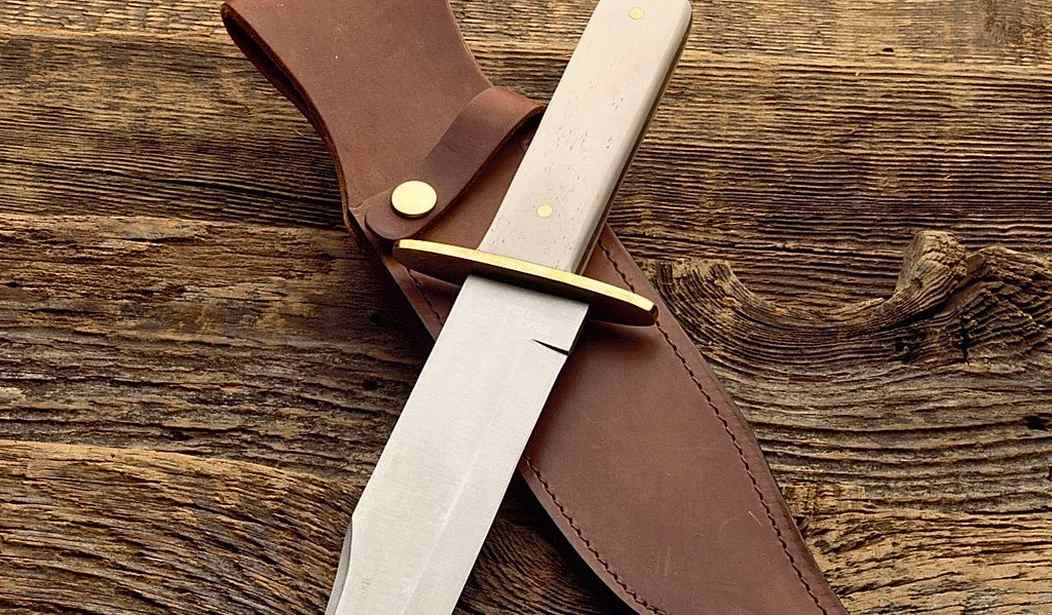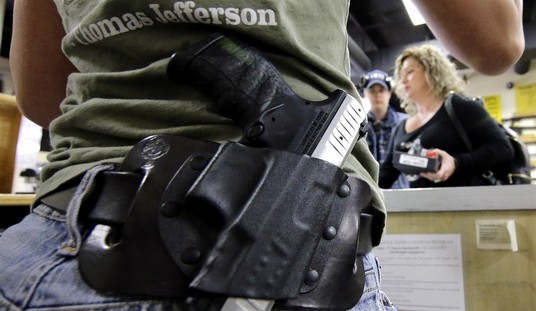The bowie knife is one of the more recognizable pieces of American history. Jim Bowie, who is credited for inventing it, was one of those killed at the Alamo but the knife named after him has lived on.
And now, rules about those knives are being used to justify a ban on another distinctly American weapon, the so-called assault weapon.
Maryland’s ban on semiautomatic assault-style weapons passes constitutional muster because it is in keeping with the nation’s history of restricting “extraordinarily dangerous” offensive weapons dating to the bowie knife in the early 1800s, the state’s attorney general told the 4th U.S. Circuit Court of Appeals last week.
Brian E. Frosh’s historical defense of the weapons ban followed the U.S. Supreme Court’s ruling last summer that gun regulations are constitutionally valid if they comport with the text, history and tradition of firearms restrictions when the Second Amendment was adopted in 1791 or when the 14th Amendment extended the right to keep and bear arms to the states in 1868.
In papers filed with the 4th Circuit Thursday, Frost said several states restricted bowie knives between those years due to the “uniquely harmful damage” they could inflict on the human body.
“Just as novel weapons in the 1830s triggered novel regulation, the advent of mass shootings with assault rifles in the late 20th century created a need for regulation to address those heightened dangers,” Frosh wrote.
“And just as, in an earlier era, new weapons were regulated because of their damaging potential in offensive use (while having limited self-defense function), assault weapons used in mass shootings inflict carnage on the human body much worse than bullets from non-assault weapons can,” Frosh added. “And just as bowie knives were closely associated with criminality, so too are assault weapons disproportionately used in gang crime, mass shootings, and other crimes.”
Now, I’m going to give Frosh credit. He found a law banning a category of weapon from within the timeframe given in Bruen.
Sort of.
First, when those laws were passed, incorporation wasn’t a thing. At that point, many still believed the states could restrict arms whereas the federal government couldn’t. That’s simply not the case now with the 14th Amendment.
In fact, bowie knife laws actually fall kind of in the middle of those two timeframes in such a way it can be argued it’s outside of both.
But then there’s Frosh’s argument that AR-15s and other so-called assault weapons are uniquely dangerous and play a significant role in criminal activities. We keep hearing this talking point from anti-gun officials, but there’s remarkably little fact supporting the assertion.
We know that with regard to homicides, hands and feet kill more people every year than rifles of all kinds, much less “assault weapons.”
Further, in the 1830s, the bowie knife was designed as a close-combat weapon in a time when dueling was common as were other forms of knife-based rowdiness. Because of its size, it’s possible that many lawmakers saw no legitimate use for the weapon except for fighting.
By contrast, the AR-15 and other weapons have a sporting purpose on top of their self-defense use. Not only are they commonly used to hunt varmints, but also serve as competition gun platforms for things like three-gun competitions. As such, any comparison to the bowie knife is a reach at best.
With all that said, though, this is going to be a line of “reasoning” we will see again. While the text and history standard laid out in Bruen is tough, laws like this are what will be used to justify still more bans on various arms.
Yet my sincere hope is that the judges call BS on this and point out that restrictions on bowie knives–which were poorly defined in the early days, it should be noted–are hardly justification for banning so-called assault weapons.








